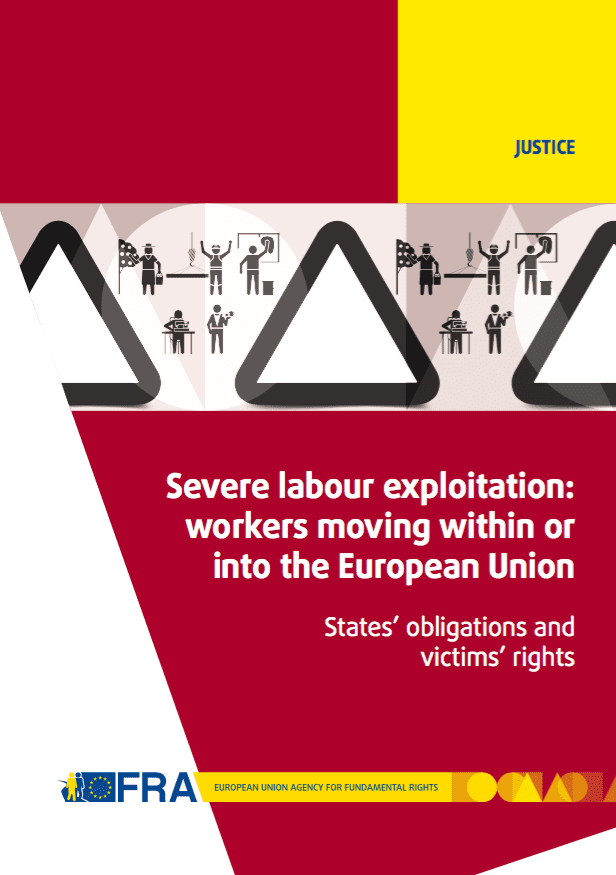
Severe labour exploitation: workers moving within or into the European Union
The phenomenon of worker exploitation in general has to date been the subject of less research than related phenomena, such as trafficking or forced labour. There is therefore scant evidence of the vast number of people who move from one EU Member State to another or migrate into the EU and are forced by their economic and social circumstances to accept working conditions far below recognised legal standards. The extensive fieldwork and desk research conducted for the report aim to fill this knowledge gap, thus challenging the current climate of implicit acceptance of severe labour exploitation. The report identi es risk factors contributing to such exploitation and discusses means of improving the situation. These include prevention strategies such as increased workplace inspections and greater efforts on the part of EU institutions and Member States to tighten public procurement procedures to avoid inadvertently funding exploiters. The report also stresses that greater efforts are necessary to enable and encourage victims to report cases of labour exploitation, for example by encouraging trade unions to take an active role in informing and assisting persons who move to work into the EU or to another EU Member State.
